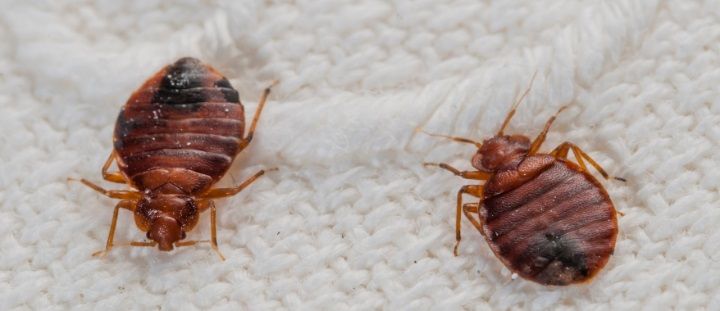Dealing with pests can be a nightmare, especially when it comes to bed bugs, termites, and other uninvited guests. These tiny invaders not only cause discomfort but can also pose serious health risks. In this detailed guide, we’ll explore the benefits, processes, and tips for effective pest treatment services and bed bug treatment to help you reclaim your home or workspace.
What Are Pest Treatment Services?
Pest treatment services are professional methods designed to eliminate pests like rodents, termites, cockroaches, and bed bugs from residential or commercial spaces. These services often use eco-friendly solutions and advanced tools to ensure your property is pest-free without causing harm to the environment.
Benefits of Professional Pest Treatment Services:
- Long-term pest control and prevention.
- Improved health by reducing pest-borne diseases.
- Enhanced hygiene and cleanliness.
- Peace of mind knowing your space is safe.
Understanding Bed Bug Treatment
Bed bugs are notorious for their resilience and rapid reproduction. Effective bed bug treatment involves targeted approaches to eliminate these pests and prevent re-infestation.
Signs of a Bed Bug Infestation:
- Red, itchy bite marks on your skin.
- Bloodstains or dark spots on bedding and furniture.
- A musty odor in the affected area.
Why Professional Pest Control Matters
Advantages of Hiring Experts:
- Tailored Solutions: Professionals assess the severity of the infestation and offer customized pest treatment services.
- Safe Products: Certified pest controllers use safe and approved products, ensuring the safety of your family and pets.
- Time Efficiency: DIY methods often take longer and may fail; experts deliver fast and effective results.
- Prevention Plans: Professionals provide guidance to prevent future infestations.
Methods for Effective Pest Control
- Chemical Treatments:
- Pesticides are applied to eliminate pests from their nests.
- Non-Chemical Treatments:
- Heat treatments, traps, and eco-friendly sprays.
- Integrated Pest Management (IPM):
- Combines various methods to control pests sustainably.
Steps in Bed Bug Treatment
- Inspection:
- Thoroughly inspect mattresses, bed frames, and cracks.
- Preparation:
- Remove clutter and wash linens in hot water.
- Treatment:
- Use steam cleaning, chemical sprays, or heat treatments.
- Follow-Up:
- Schedule regular inspections to ensure bed bugs are gone.
Common Pest Control Techniques
- Fumigation: Effective for termites and other wood-damaging pests.
- Sprays and Baits: Targets cockroaches and ants.
- Traps: Safe for capturing rodents without causing harm.
DIY Pest Control Tips
While professional help is ideal, some minor infestations can be tackled using these DIY tips:
- Seal cracks and crevices to prevent entry.
- Use essential oils like peppermint or tea tree as natural repellents.
- Keep your living spaces clean and free of food debris.
FAQs About Pest Treatment and Bed Bug Control
1. How long does a pest control treatment last?
Most treatments provide protection for up to 3 months. For severe infestations, more frequent follow-ups may be necessary.
2. Are pest control chemicals safe?
Professionals use chemicals that are safe for humans and pets when applied correctly. Always hire certified experts.
3. Can I eliminate bed bugs without professional help?
While minor infestations might be managed with DIY methods, professional bed bug treatment ensures complete eradication.
4. What’s the cost of pest control services?
Costs vary based on the type of pests, the severity of infestation, and the size of the property. It’s best to get an estimate from a trusted provider.
5. How can I prevent pests after treatment?
Maintain cleanliness, seal entry points, and schedule periodic pest control services for lasting protection.
The Importance of Routine Pest Control
Routine pest treatment services not only keep pests at bay but also protect your property’s value. Termites, for instance, can cause structural damage if left untreated, leading to costly repairs.
How to Choose the Right Pest Control Service
When selecting a pest control provider, consider the following:
- Experience: Look for a company with proven expertise in handling various pests.
- Certifications: Ensure they use licensed and approved pest control products.
- Customer Reviews: Positive feedback from other clients is a good indicator of reliable service.
Tips for Effective Bed Bug Prevention
- Inspect Second-Hand Items: Before bringing used furniture or clothing home, inspect them for bed bugs.
- Travel Smart: Check hotel rooms for bed bugs and keep luggage elevated.
- Vacuum Regularly: Pay extra attention to cracks, crevices, and corners.
Conclusion
Investing in professional pest treatment services and bed bug treatment is the best way to ensure a safe, clean, and pest-free environment. Whether it’s a minor pest problem or a full-blown infestation, prompt action can save you time, money, and stress.
By following preventive tips and seeking expert help, you can maintain a healthy living or working space, free from unwanted pests. Don’t let pests take over your home—act today for peace of mind.
